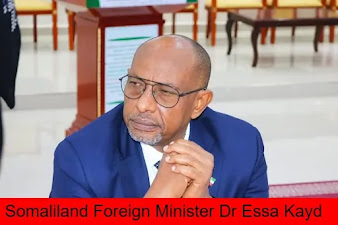Today In History: On May 18, 1991, Somaliland Became A Nation For The Second Time
If a nation declares its independence, and successfully holds its territory for two decades, engaging in peaceful internal elections, developing its people and resources, and even participating in ongoing regional security efforts, doesn’t that make it a nation? If not, what would?
Somaliland declared its independence from Somalia on May 18, 1991. Siad Barre, a bloodthirsty and meglomaniacal dictator, had killed tens of thousands of Somaliland citizens, used fighter jets to strafe and bomb civilians, and largely destroyed the infrastructure of the area during a civil war that started in the 1980s, and that ultimately ended up in his death and the collapse of central Somali authority, it being impossible to hold Somalia together without overwhelming military force, something no warlord or Sharia courts or weak Transitional Federal Government has been able to achieve in the last two decades.
Just as the international community (including the United States) propped up Barre’s dictatorship because of mistaken geopolitical goals, valuing a purported “ally” in the region over concerns for the well-being of the actual people in those nations, the international community has continued to prop up the illusion of nationhood in Somalia or similarly mistaken geopolitical goals. In both cases, the goal is the balancing of forces against Ethiopia, the regional power in East Africa, who, despite having lost its access to the sea when Eritrea also won its independence in 1991, remains the dominant military force in the region.
Part of the reason for Ethiopian dominance is the weakness of its rivals. Sudan recently formally split into two, with South Sudan set to take its place in the UN in June, having promised to recognize Somaliland independence immediately upon entry to the international community. A united “Greater Somalia” would be an effective counterweight to Ethiopian strength, but Somalis are divided between five nations (Djibouti, Somaliland, “Somalia,” Ethiopia, and Kenya) and lack any genuine national identity at this point.
Therefore, Somaliland remains an independent nation that acts like an independent nation, votes like an independent nation, drinks Coca-Cola like an independent nation [1], runs its affairs like an independent nation, engages in international trade and security talks like an independent nation, but whom the world does not want to officially recognize as an independent nation. Nevertheless, the total absence of asabiya within Somalia and the presence of a strong national identity and robust development efforts and security efforts within Somaliland mean that at worst, the world will wink and give Somaliland what amounts to tacit recognition for their own trade and security benefits. As a worst case option, that might be enough for Somaliland to remain one of the stronger and better developed Sub-Saharan democracies. The best case option is for its well-earned seat in the AU, the Arab League, and the African Union, which it would have had long ago if the world were remotely just.


Comments
Post a Comment